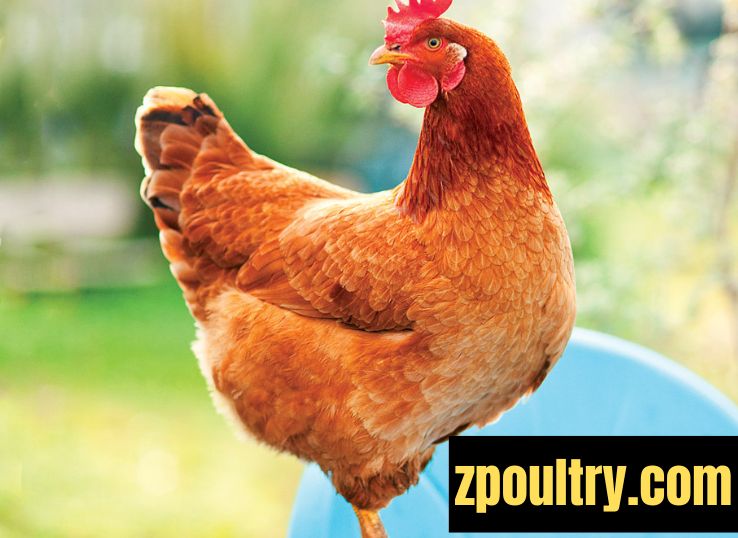Last Updated on April 27, 2023
Some people might consider owning chickens in Sacramento due to the rise in egg prices over the past year. A US Department of Agriculture report says egg prices have risen over the past year; a dozen large eggs average $5.97.
The question is starting to circulate: Are chicken coops worth the cost or does ease of access offset the cost? It is a question that is being asked throughout the city of Sacramento.
There was also a response on social media, with more than 100 comments relating to the subject posted on Sacramento Reddit. However, it is best to know what the city rules are about owning chickens in Sacramento before setting up a coop.
Fortunately, in Sacramento, owning chickens is legal. However, there is some work that must be accomplished before owning chickens. The following is what the city has to say regarding the ownership of chickens:

Table of Contents
ToggleLaws about Keeping Chickens in Sacramento
There are numerous egg farming rules that apply to homeowners in the city of Sacramento. According to a city ordinance enacted in 2011, up to three hens may be kept in backyard coops.
The license fee for chickens is $10 a year, and the renewal fee for the permit is $15 a year. Based on Sacramento’s website, here are the requirements:
- Per residential parcel, you can have a maximum of three (3) chickens.
- It is prohibited to keep roosters.
- There is a prohibition against slaughtering.
- You can’t build a coop closer than 20 feet to a neighbor.
- It is necessary to confine and properly cage chickens at all times in a coop.
- Noisy chickens are prohibited.
- Ideally, the coop should be well-maintained and clean and measure at least 15 square feet and a maximum of 42 square feet.
- Coop construction requires four walls, a roof, and the use of appropriate materials.
- It is only permitted to keep a chicken coop in the rear yard.
- The coop must be equipped with nesting boxes.
- Food, water, and adequate ventilation must be provided to chickens.
- The proper storage of feed is essential to prevent spoilage and rodent access to food.
- A container that is airtight must be used for storing feces and feathers prior to disposal every 24 hours. A city-issued garbage container may be used.
Fees, Licencing, and permits
- There is a $10 annual license fee per chicken. Each bird will be issued a band.
- The fee for the annual permit is $15.
- The check should be made payable to the City of Sacramento.
- Mailing Address: 2127 Front Street, Sacramento, CA 95818
INSPECTIONS
- If a complaint is filed, an animal control officer will respond and conduct an inspection.
- Violations of the ordinance will result in administrative citations. If you are in possession of fighting roosters or if you are involved in an animal cruelty, abuse, or neglect situation, a criminal citation may be issued to you.
Things You Need to Start a Chicken Coop
Following a thorough understanding of all the rules, you are now ready to construct a chicken coop. It is necessary to have certain items in order to construct a chicken coop.
There are three items that you will need to start a chicken coop.
- Boarded coop
- Water dispenser
- Food dispenser
You can save money by upcycling a chain-wire dog cage to use in a chicken coop. You can get cheap or free dog runs from people in your neighborhood who are desperate to get rid of them.
Feeding Chickens
It is recommended that you feed chickens three times a day. It is recommended to use water and food dispensers to keep chickens fed throughout the day without affecting owners’ schedules.
For hens to produce high-quality eggs, they require a high-protein diet. If you combine pellets and scraps in your chicken’s diet, your hens will love it.
Backyard growers tend to purchase one of these bags and then supplement their kitchen scraps with them. However, the more kitchen scraps you can use as a supplement, the less feed you will need to purchase.
Do you need a rooster?
I would have to say no. Of course, that’s if you don’t want to keep baby chickens. Regardless of the circumstances, hens are likely to lay eggs.
If there’s no rooster around to fertilize the eggs, they won’t hatch into chicks. In addition, males aren’t allowed in Sacramento.
So, is it worth it?
While egg prices have risen, it’s still expensive and time-consuming to build a chicken coop. Considering that eggs are expensive, you may believe that if you produce more eggs, you will be able to get a better price, but that is not necessarily the case.
Because hens do not lay eggs all year, the value of starting a chicken coop is questioned. According to the University of Minnesota Poultry Extension website, molting and the loss of daylight hours can result in reduced egg production.
The purpose of this program is to assist poultry producers in reducing disease in poultry, developing new products, and increasing profits. Rather, I encourage those interested in starting their own chicken coop to develop a plan that is self-supporting.
You can compost your chicken waste if you feed them kitchen scraps. As long as it is solely a matter of saving money on eggs, it is not going to be cost-effective.
By recycling household waste and growing food, the system generates value in addition to producing food. Ultimately, it is up to you to decide whether it is worth the effort and expense to enjoy the taste of fresh eggs from your own backyard.

I am a Veterinarian by profession having 3 years of experience in raising poultry flocks. So far my number of successful flocks is 9. I am sharing all my experience about poultry farming with you so that you can make this profession your bread and butter. Stay Tuned with my latest post.
